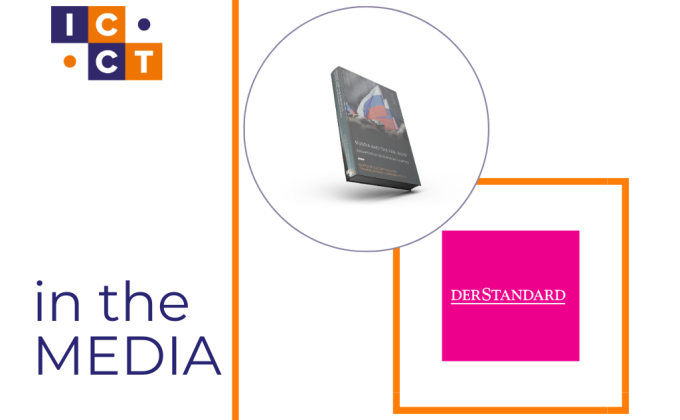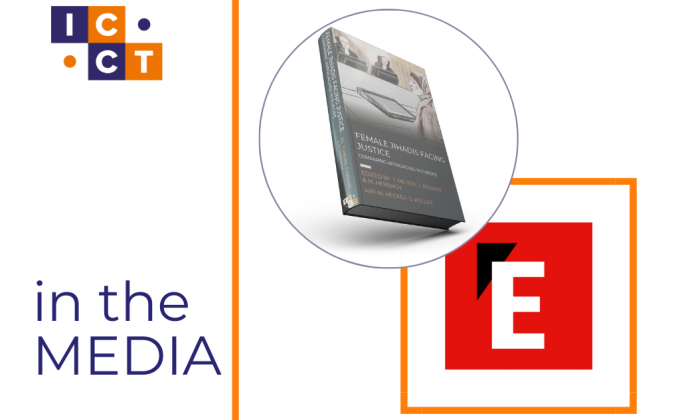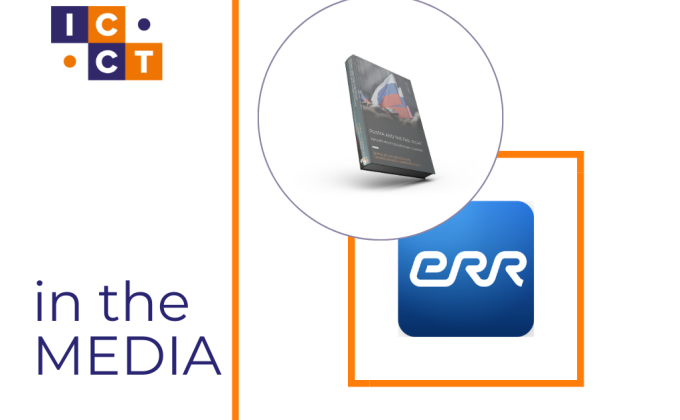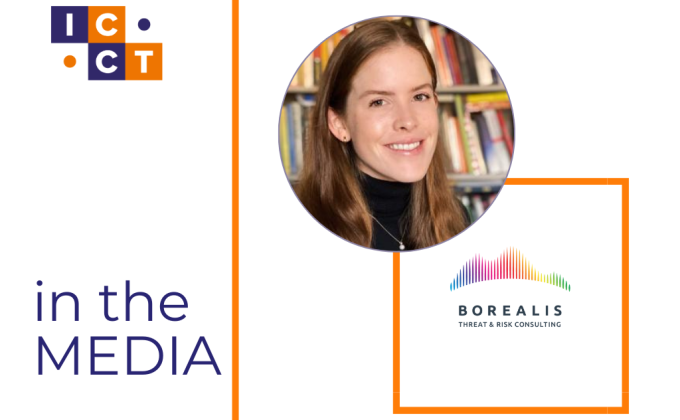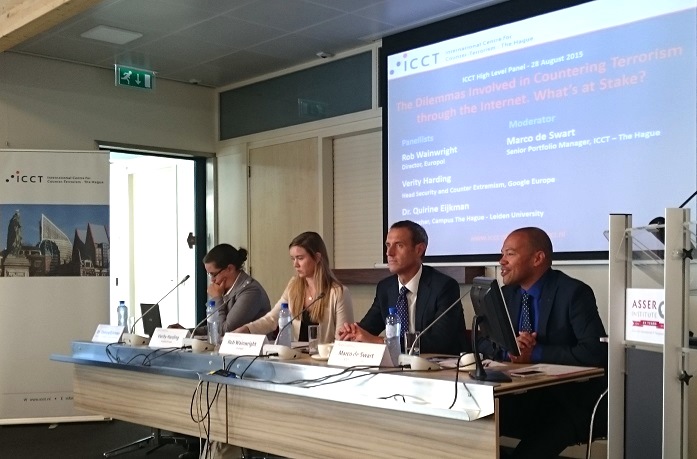
On Friday 28 August 2015, ICCT convened a public high level panel on countering terrorism through the internet at the T.M.C. Asser Instituut in The Hague. This panel was part of Summer Programme on Countering Terrorism: Legal Challenges and Dilemmas. Terrorist organisations are making use of the internet for recruitment, incitement and radicalisation purposes, but also for financing, planning and preparing terrorist attacks. While several countries are working on new legislation providing the intelligence community with far-reaching powers to crack down on communications on the internet between terrorists, EU ministers increase pressure on the social media industry to prevent the spread of radicalisation through the internet. However, these measures can have a serious impact on a range of important human rights as well, including the freedom of expression. What are some of the legal limitations and opportunities? And what’s at stake?
ICCT Senior Portfolio Manager Marco de Swart welcomed the guests and speakers, briefly introduced the work of ICCT and gave the floor to the speakers. Europol Director Rob Wainwright highlighted the security perspective and paid special attention to the working methods of Europol’s new Europe-wide Internet Referral Unit to combat terrorist propaganda and related violent extremist activities on the internet. He emphasised the importance of finding the most effective means of securing the safety of citizens in a proportional, balanced way. Verity Harding, Head Security and Counter Extremism at Google Europe, complemented this perspective by elaborating on the procedures her company uses to counter terrorist activities on YouTube and showed the difficult balance that Google tries to get right when tackling these issues. The presentations were concluded by Dr. Quirine Eijkman, senior researcher at Campus The Hague, Leiden University, and surveillance adviser to Amnesty International, who approached the topic from an academic perspective. She highlighted the current lack of empirical, first-hand research data, for example assessing the effect of communications surveillance and interception programmes. She further accentuated the side effects various measures can have on human rights, such as the freedom of expression. 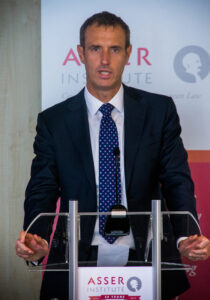
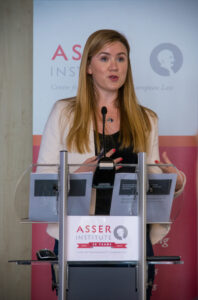 (© Dick Blom) Following the presentations, moderator Marco de Swart led a discussion as well as question and answer session with the audience. The attendees showed great interest in the speakers as well as engagement in the issues related to terrorism on the internet. A lot of attention was drawn to how exactly extremism is being countered on the internet and to what extent accountability and human rights are taken into account. Among the participating attendees was ICCT Research Fellow Dr. Bibi van Ginkel, who called attention to short and long term consequences and effectiveness and the balance between the right to life and security, and the right to privacy and freedom of expression when deciding on appropriate measures as well as the need to continuously evaluate the short and long term consequences and effectiveness of measures. More information about the High Level Panel.
(© Dick Blom) Following the presentations, moderator Marco de Swart led a discussion as well as question and answer session with the audience. The attendees showed great interest in the speakers as well as engagement in the issues related to terrorism on the internet. A lot of attention was drawn to how exactly extremism is being countered on the internet and to what extent accountability and human rights are taken into account. Among the participating attendees was ICCT Research Fellow Dr. Bibi van Ginkel, who called attention to short and long term consequences and effectiveness and the balance between the right to life and security, and the right to privacy and freedom of expression when deciding on appropriate measures as well as the need to continuously evaluate the short and long term consequences and effectiveness of measures. More information about the High Level Panel.
